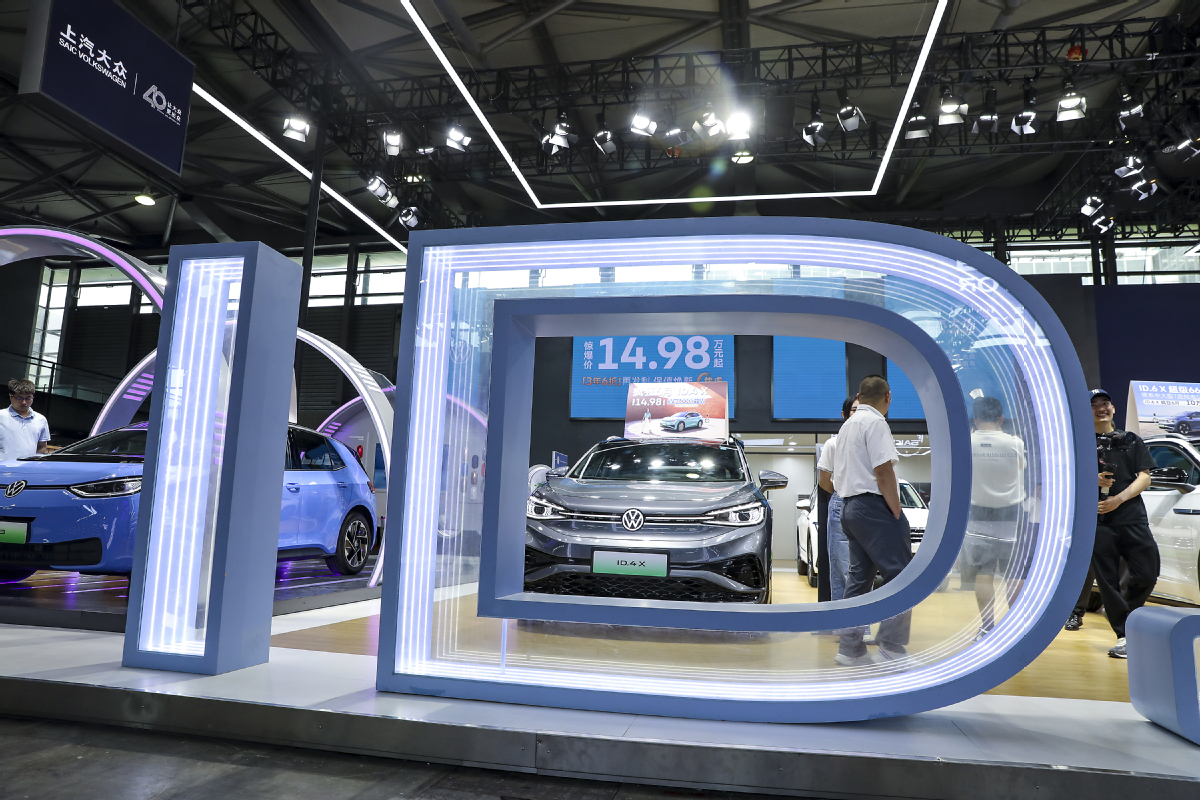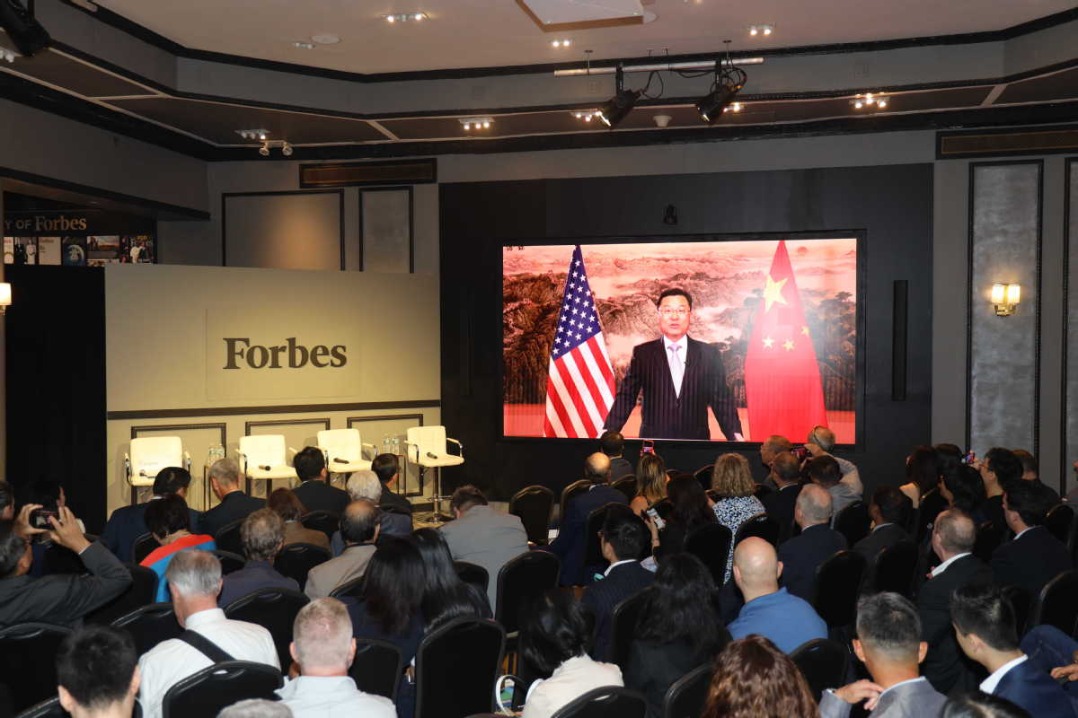German firms keen to invest more in China
Opening-up steps, high-end manufacturing and green industries promise opportunities


German companies are determined to ramp up investment in China, motivated by the country's heightened focus on expanding market openness and fast-growing industries, said business executives and market watchers.
They said that in the context of a rapidly changing global economy, China's ongoing opening-up measures, flourishing high-end manufacturing and green industries are set to accelerate the emergence of new economic growth drivers and foster innovation. These advancements will present decent opportunities for German businesses.
German direct investment in China reached 7.3 billion euros ($8.04 billion) in the first half of the year, compared with 6.5 billion euros for the whole of 2023, according to data from the Bundesbank, Germany's central bank, shared with the Financial Times newspaper early this week.
Maximilian Butek, executive director and board member of the German Chamber of Commerce in China — East China, said that in the long run, China is viewed as an important innovation market, leading to more research and development investment by German companies.
Regarding supply chain disruptions and geopolitical tensions, Butek said that German firms are addressing these challenges by diversifying their suppliers and developing local partnerships in China.
"Overall, German companies see the benefits of investing in China's growing market and are taking steps to minimize potential risks and overcome challenges," he added.
According to the results of the chamber's latest survey, more than half of German companies plan to increase their investments in China, particularly big corporates, automakers and manufacturers of electronic products.
Sharing similar views, Xu Daquan, president of Bosch (China) Investment Ltd, a country branch of German industrial conglomerate Bosch Group, said the Chinese market is evolving rapidly, and the vehicle industry holds great potential.
Highlighting that China is Bosch's largest single overseas market with an average annual investment of 5 billion yuan ($700 million), Xu said the company's spending in this category will continue to rise.
"It is possible that going forward, the innovative technologies invented in the Chinese market could be applied in other foreign markets," he added.
Following that trend, Volkswagen AG announced in May that it had started building the third phase of the group's mega R&D center in Hefei, Anhui province. The project is scheduled to be operational in 2027.
BMW AG also announced in April an additional investment of 20 billion yuan in its production base in Shenyang, Liaoning province, to localize the manufacture of a new generation of BMW models by 2026.
Wang Xiaohong, a researcher specializing in cross-border investment at the China Center for International Economic Exchanges in Beijing, said China's strengths will substantially enrich Sino-German economic and trade relations in the years ahead.
With China introducing several policies this year to promote high-standard opening-up and explore new growth areas, including support for large-scale equipment renewals and trade-in programs for consumer goods, the Munich-headquartered BSH Home Appliances Group said it will continue to expand its investment in both sales network expansion and innovation within the country.

































